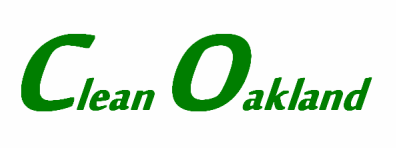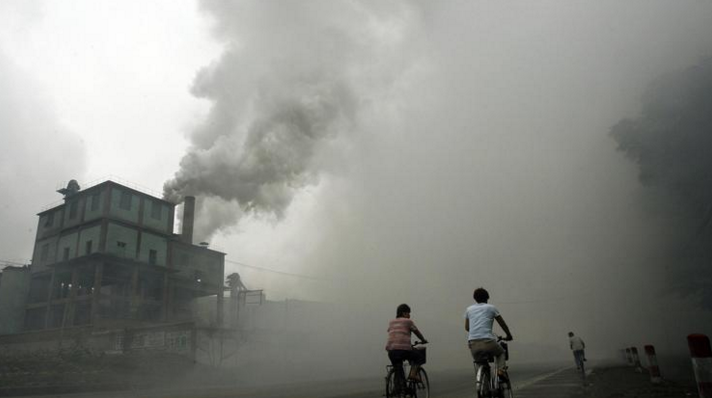Editorial If coal is too dirty for the U.S., why would Oakland build a dock to export it to Asia?5/9/2016 If coal is indeed king, it is the lord of a shrinking realm, which ought to be good news for the environment. With the nation's electricity production shifting to cleaner sources of power, U.S. coal consumption is declining.
But here's a problem: As major coal-mining companies watch their sales diminish domestically, they are struggling to find export markets in which they can continue to do business. And what have we really gained if coal that the U.S. doesn't use just gets shipped to other countries for them to burn? That's the question that needs to be answered as officials consider a proposal to build a new coal port in Oakland as part of the conversion of a decommissioned Army base. There are a lot of problems with the proposal, which we'll get to, but just from an environmental standpoint, it is a bad idea. Earth is teetering on — and may already be falling off — the edge of a cliff that will lead to catastrophic changes in the environment. Rising seas. Species extinctions. Collapsed ecosystems and fluctuating food security for humans. The culprit: humans, and our reliance on carbon-spewing fossil fuels. The absolute worst of those is coal. So if we're serious about combating global warming and its attendant environmental disasters, why make it easier for other countries to continue down the coal-burning path? The proposal arises from the redevelopment of the decommissioned, 330-acre Oakland Army Base at the foot of the Bay Bridge. The California Capital and Investment Group, with which the city of Oakland contracted in 2012, proposed to build a 30-acre Oakland Bulk and Oversize Terminal to handle alfalfa, grain, potash, wind turbine parts and other products. Chief Executive Phil Tagami wrote in a December 2013 newsletter that the developers' plans did not include “the pursuit of coal-related operations at the former Oakland Army Base.” Yet reports surfaced in early 2015 that coal was indeed part of the mix, which the developers had kept secret to avoid public opposition. How much coal? Estimates run as high as 10 million tons a year, which is about five times the combined volume of the state's other coal docks in Long Beach, Stockton and Richmond. The coal could end up being shipped via open-top rail cars, a practice that, without mitigation (such as spraying the load with a chemical sealant), can spread more than 600 pounds of coal dust per rail car over the course of a 400-mile trip. Coal dust, which causes black lung disease among miners, contains lead, mercury and other elements that can be toxic even in light concentrations, and is linked to heart and respiratory diseases. The coal would come from mines in Utah, where four counties and the state government have concocted a scheme to take $53 million in federal mine lease-fees — money meant to support infrastructure and other public projects in communities affected by mining on public lands — and invest it in the Oakland port project. The goal is to provide a link to foreign markets for the Utah coal. Note that with the exception of port jobs in Oakland — which would exist no matter what products were to be shipped — the only thing California gains from this project is an environmental headache. The port developers say they will use covered rail cars and covered facilities in Oakland, but environmentalists are right to be skeptical given the lack of transparency so far, and the fact that open-top rail cars are the industry standard. The most likely path is through the Donner Pass north of Lake Tahoe to Sacramento, across the Central Valley to the port in West Oakland, where the overwhelmingly low-income residents already suffer from elevated cases of asthma and other pollution-related ailments. That's just the kind of information that should be included in the project's environmental impact report, but because coal was supposedly not being considered when the report was done, that impact was not assessed. That's absurd. The city of Oakland should order a supplemental environmental report and, if the deleterious effects of the project are as bad as expected, the city should pull the plug. This is a project that would harm the local environment — and the global environment as well. If we need to wean the world from coal, why would Oakland build a dock to export it? Follow the Opinion section on Twitter @latimesopinion and Facebook
0 Comments
|
Gene HazzardDon't Be Envious of Evil Men Archives
June 2024
Categories
All
|
- Home
- Sanjiv Handa
- Gene's Blog
- Rotunda RFP
- Gene Hazzard -Keeping eyes open
- Chronology of Tagami's scheme of Private-Public Partnership with City Projects
- Another Tagami scheme - Rotunda Building deal
- Oakland Army Base
- Billboards in Oakland
- Port of Oakland
- Oakland Raiders?
-
Who is running Oakland?
- Jerry Brown
- Don Perata
- Judge Robert B. Freedman
- Jacques Barzaghi
- Gawfco Enterprises
- Deception
- Doug Bloch
-
Phil Tagami
>
- SF Business Times November 20, 2005
- Rotunda wrestling
- A conversation with Oakland developer Phil Tagami
- Audit of $91 million Fox Theater project
- Tagami Conflict
- CCIG Response to Oakland Works
- Oakland developer Phil Tagami named to state medical board
- ‘Shotgun Phil’ hits another bullseye — with governor’s help
- CleanOakland Store
- CenterPoint Properties


 RSS Feed
RSS Feed
